Burj Khalifa Shines in Colours of Croatian Flag
Burj Khalifa, the tallest building in the world, was dressed in colours of the Croatian flag. This is how Dubai welcomed Mayor of Zagreb Milan Bandić, who is visiting the largest city of the United Arab Emirates, reports Večernji List on March 13, 2019.
Bandić is supposed to meet there with Mayor Dawood Abdul Rahman al-Hajiri, and Mohamed Alabbar, owner of Eagle Hills, who will realise the City in the City project in Zagreb, also known as the so-called Zagreb Manhattan. The delegation travelled to Dubai upon receiving an invitation from al-Hajiri.
Bandić posted a photo of the Burj Khalifa in the colours of the Croatian flag on Facebook. “When Dubai is lit in Croatian colours... Greetings to my beloved Zagreb and all of Croatia!” Bandić wrote.
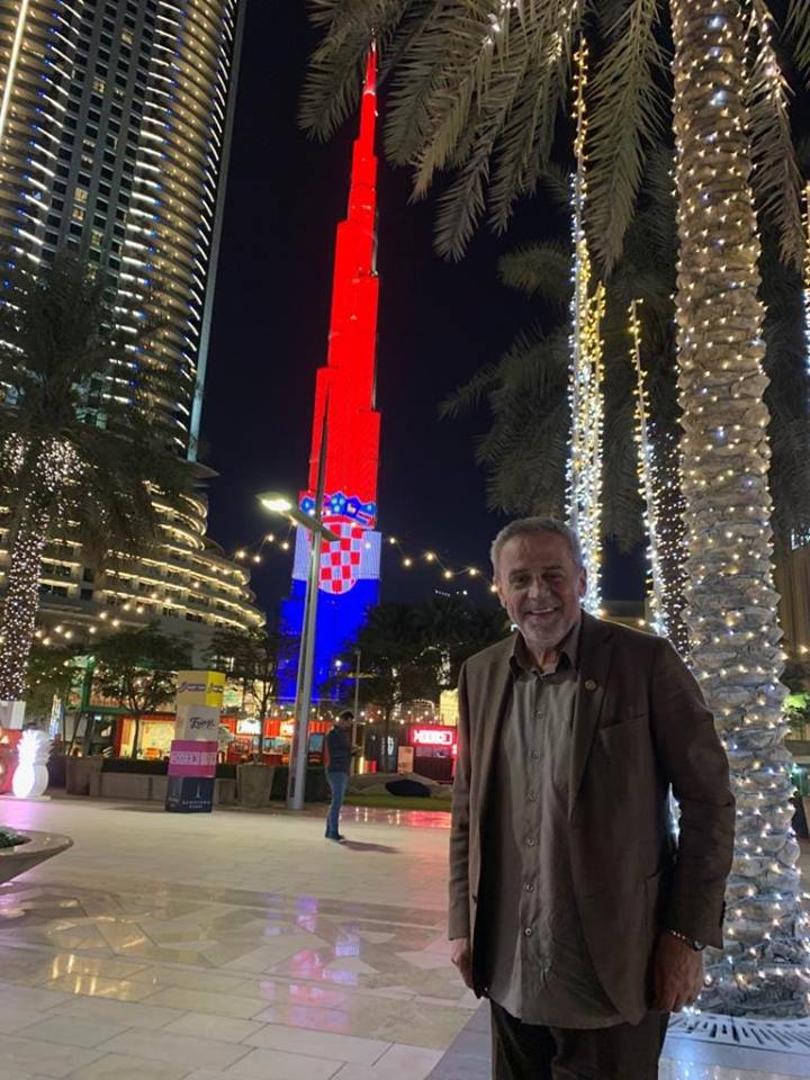
The city authorities opted for Alabbar's offer last week, deciding it was better than the one sent by the concessionaire of Zagreb Airport, which also wanted to develop the area. Although the mayor said that the decision was not final, according to unofficial information he is in Dubai to negotiate and sign a memorandum of interest.
The new project will be developed at a one million square metres area bounded by the Sava river, Većeslav Holjevac Avenue, Dubrovnik Avenue and Cimermanova Street. Mayor Bandić supposedly likes the type of project that Mohamed Alabbar’s Eagle Hills is already developing as part of the Belgrade Waterfront.
There is no detailed information about the Zagreb project, since there are a number of steps which need to be done before the construction can begin, and the main one is amendments to the city urban planning documents. What could be agreed in Dubai is how the partnership between the city authorities and Eagle Hills will work, who will invest how much in the project and how the potential profits will be split. Mohammed Alabbar has already talked with Bandić in Zagreb, and they will now meet again in Dubai.
“Everything we have done in these 19 years pales in comparison with what will happen there”, said the mayor in mid-February talking about the "Zagreb Manhattan". The project is expected to be worth between a billion and a billion and a half kuna and more information should be known in a month to two.
This is just one of Mayor Bandić’s major projects which he has announced during 19 years of his rule, but many of them have never moved beyond the initial phase.
More news about the Zagreb mayor can be found in the Politics section.
Translated from Večernji List (reported by Mateja Šobak).
Algebra University College Zagreb: Croatia, Your Live and Learn Destination
March 9, 2019 - Croatia is attracting international visitors for a number of reasons apart from tourism, including education. Meet Algebra University College.
“Croatia had caught my eye for some time, with its beautiful scenery and pictures online, but the undeserved defeat in the World Cup finals cemented my intention to visit. I believed studying in Croatia would give me the best opportunity to feel like a local and immerse myself in the culture. Zagreb was amazing. One of the cleanest and safest cities I have lived in," says Haitham Hamid from Australia, one of many students that visited Croatia this winter and enjoyed his stay in our beautiful country while taking a lot of time to study and learn something new at Algebra International Winter School.
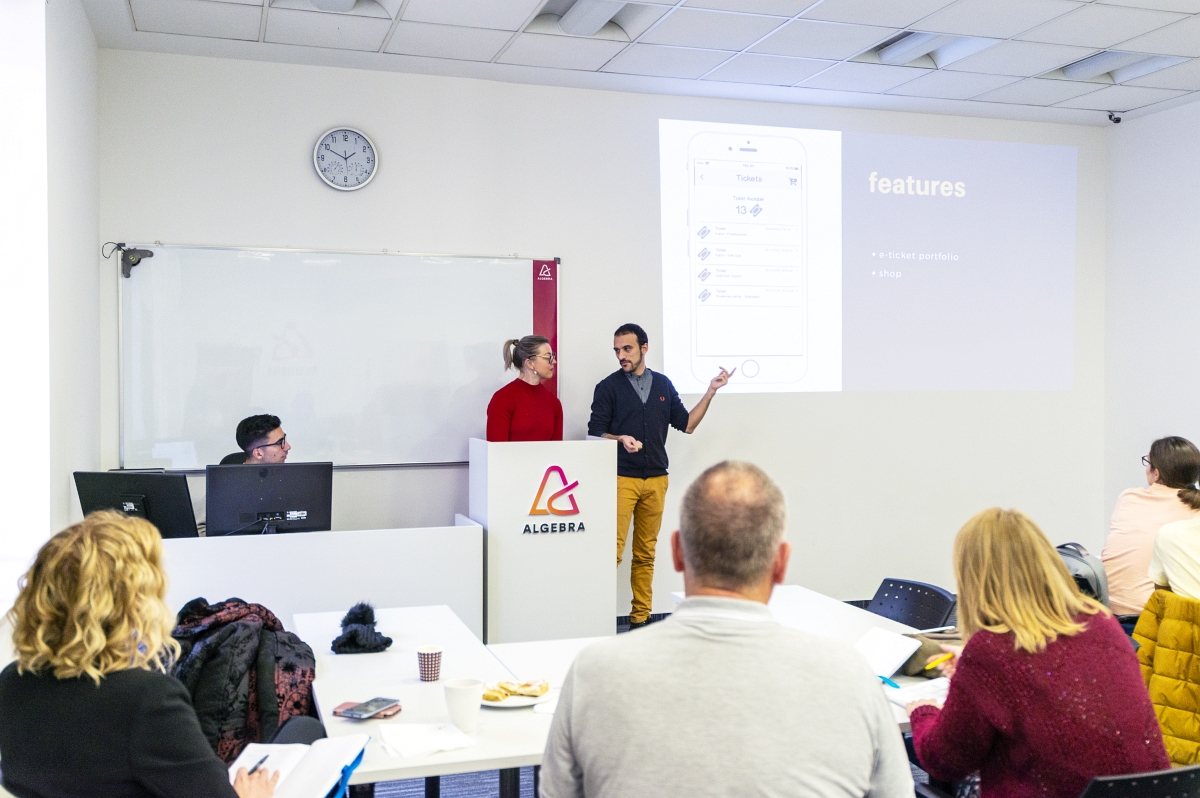
"The people were hands-down the highlight of my trip, everyone I met in Croatia was so nice and helpful. They will always be in my memories and have definitely shaped my great impression of Croatia. Don’t get me started on the food as well, one word – 'mmm'," he continues.
Haitham is not the only one who has found Zagreb and Croatia to be pleasurable destinations.
“Three weeks in January away from the dismal English winter, exploring the land of a thousand islands, of fairy tales and Game of Thrones shooting locations, while learning new technology trends at a premier educational institute and adding qualifications to my CV? Yes, I was more than interested!” explains Somdutta Sarkar, a student originally from India who is currently studying in the UK.
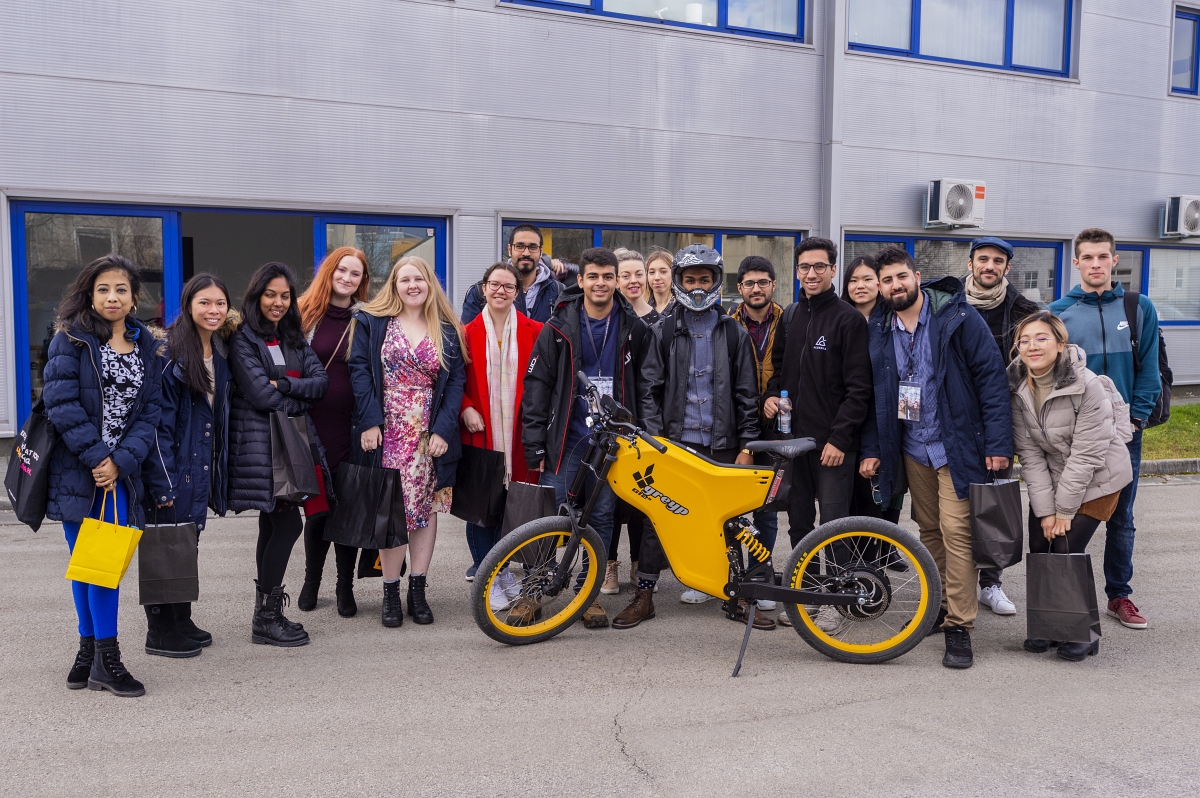
When Algebra started attracting international students to the Algebra University College, they approached the organization of their International Summer School with immense enthusiasm and a "can do" attitude. "Little did we know that our success depended much less on us than on the overall issue of attracting international students to Croatia and proving that Croatia is a great study abroad destination," Lidija Šimrak, Algebra’s International School Project Manager, explains.
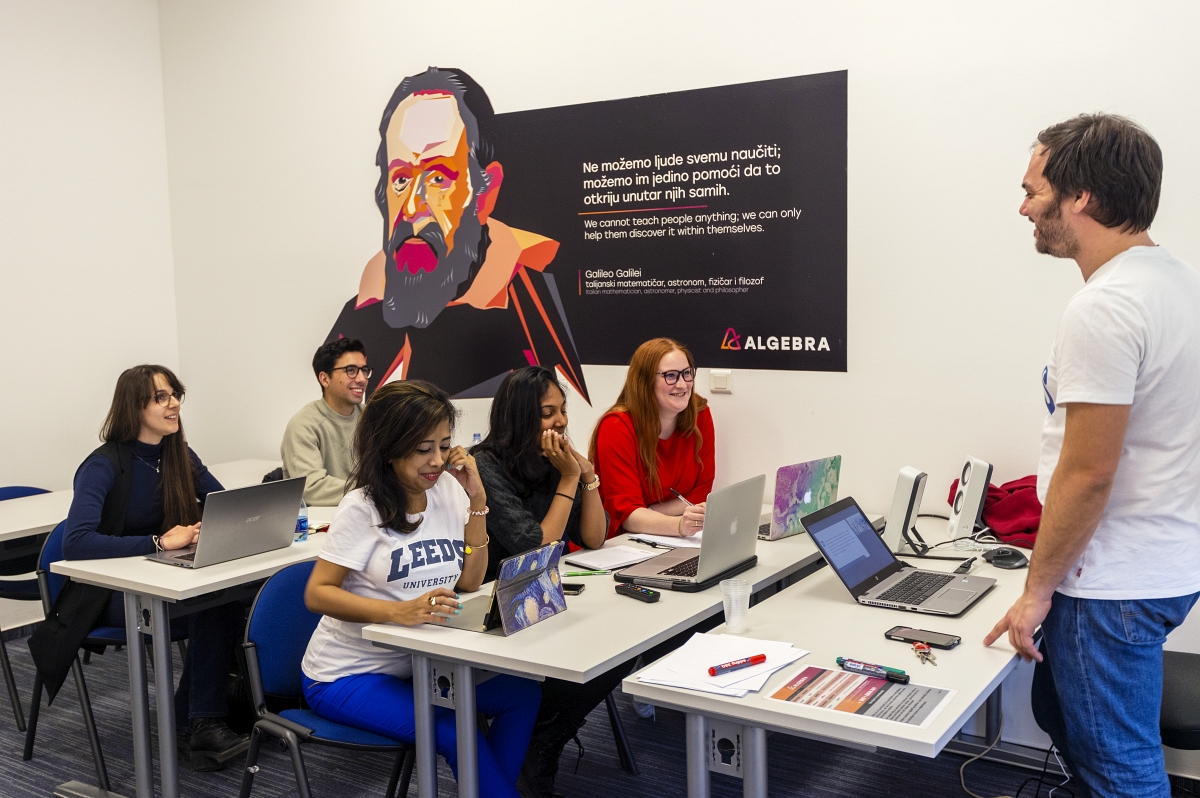
To achieve that goal, Algebra needed all Croatian institutions united and willing to invest time, resources and money in attracting brilliant and curious young minds to explore everything our country has to offer. "We are so proud that more and more Universities in Croatia realize this potential and strive in the same direction now. Each year we are getting more and more students on our short International Summer and Winter School programs, more Master students and are planning to start enrolling Bachelor students as well due to the overall interest.
Our labor market is in need of educated, ambitious and creative young minds, and with enough help from the education institutions we can change the current gloomy state of things," Šimrak explains.
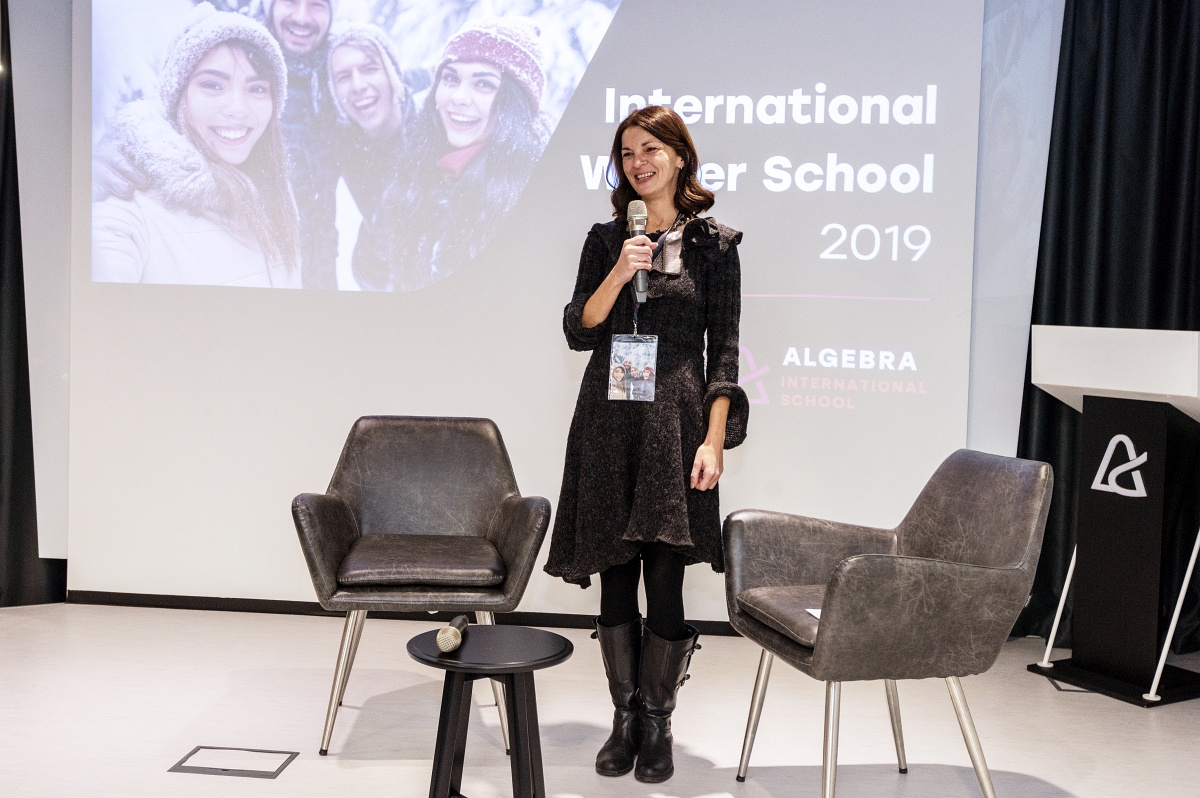
With one more International Winter School behind them, Algebra can certainly claim it was very successful and has checked all the boxes they hoped it will. Young people from all over the world chose Croatia as their place to be during the winter break and chose Algebra as a place to learn something new.
There were three courses to choose from – Digital Marketing; with joint certifications by Google AdWords and Google Analytics, Cyber Security; with a focus on ethical hacking, breaking into the systems and protecting the systems from real hacking, and every industry’s new favorite; Artificial Intelligence. Considering Algebra University’s academic partnerships with companies like Microsoft, IBM, and Cisco, and the accreditation of its professional study programs by European bodies like NVAO and ASHE, it is no surprise that the winter school programs are particularly geared towards creating a digital future. Croatia, after all, is also the land of technological innovations.

When international guests representing some of the best universities in the world visit Algebra, Algebra's staff like to point out some of the key technological advances and discoveries that were made in Croatia – namely that this is a country where fingerprinting was developed into a method of identification, where the parachute was invented, where the precursor to atomic theory was nurtured, and also where Nikola Tesla was born – the man who practically invented the future we now live in. With such a versatile group of students, the process of internationalisation is just as beneficial to the lecturers. Teaching students from all over the world, getting to know them, see the way they think and how their cultural differences are overshadowed by the same interests is a reward on its own.
Maja Brkljačić was one of the lecturers on the programme. She says: “What I enjoy most about teaching this program is the chance to teach foreign students. I have been working with international students for several years, both at International Winter and Summer school. I have found our students to be a lively group, always ready to chat and make jokes, but when it comes to sit down and learn I have found them focused, highly motivated and I have enjoyed their discussions greatly.”
Robert Petrunić, one of the leading Croatian IT security specialists, also taught a course on the program.
“What I love the most about teaching our students is the diversity I have in the classroom. This diversity brings new challenges to me as a teacher and a joy to the students and myself when this diverse group is acting as a single entity," he says.
"I enjoy the experience of teaching students from different cultures, different countries and experience of collaboration between them. What I like about our international students is the way they handle a new country, new teaching processes and the knowledge that is overwhelming at some points. It creates a little bit of tension, and I love seeing how they relax during the process when they become friends with their teachers, lecturers, staff of Algebra University College and most of all their colleagues," said Vanja Šebek, one of the lecturers on the digital marketing program in Winter School, and the head of the graduate programs in the field.
There is no better time to make Croatia a desirable study abroad destination, Lidija Šimrak believes. "Our silver in the World Cup last year, famous Game of Thrones filming locations, our beautiful coast and the fact that it is not an expensive destination puts us on the map as a great location for international students. Moreover, we try to incorporate as many field trips and company visits as possible in our three-week International Summer and Winter School programmes to show our students not only our stunning nature, but also our business success stories. It really is of great importance to show the students the bright side of our economy and show them the future of Croatia’s digital technology industry," she says.
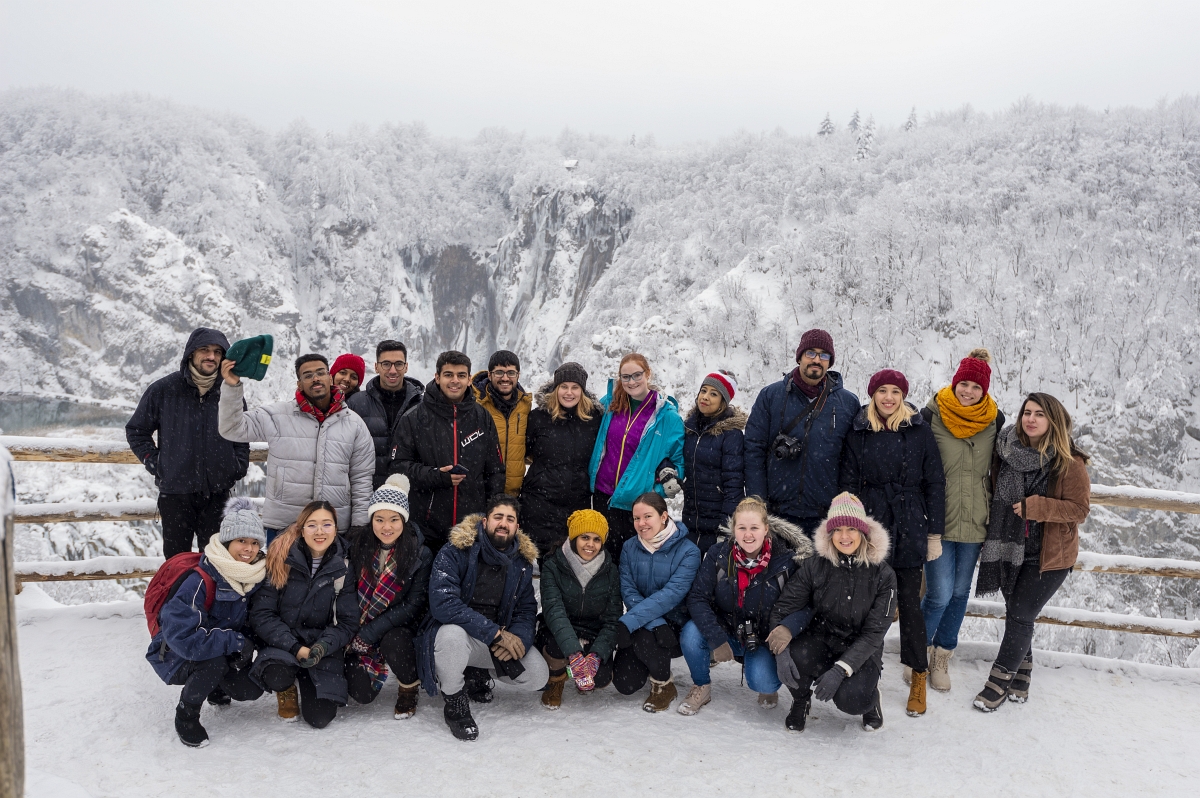
This year, in July, Algebra’s International Summer School will take place in Zagreb and Šibenik where they will be offering the students 8 different courses they can choose from. The shaping of digital future comes from various branches of technology, so they offer courses that are both creative and in accordance with the demands of the industry.
"The programme tries to be high on involvement to facilitate the learning process; it even includes a workshop on financing startups, and another in Croatian language and culture, as well as social events and company visits. My experience has taught me that only good things can come of projects like our International School summer and winter programs," Lidija Šimrak explains, and continues: "Not only is it a great promotion of everything we can offer as a country and as an educational institution, but also an opportunity to learn about other cultures, to not only teach our students, but also learn from them and their ambitions. We remain optimistic and enthusiastic about the future of internationalization of higher education and we will continue to do everything in our power to show international students why Croatia is an excellent choice for a study abroad experience. Our mantra is to lead by example and encourage not only our students, but also other educational institutions to recognize the potential of internationalisation."
About Algebra University College:
Algebra University College is the flagship of largest private educational organization in Republic of Croatia and the region, present today in more than 20 cities across Croatia. Founded in 1998, we currently have more than 120 full-time employees and more than 400 associated experts. Throughout our first 20 years, we got to know all of you pretty well, and we firmly believe that you deserve only the very best. Learn more from the official Algebra website.
Free Festival of Lights Marks Three Years in Zagreb with Longer Program
The Festival of Lights continues its story, and in its 3rd edition, brings new attractive audiovisual installations and projections that will revive 20 locations in the historical center of Zagreb, reports HRTurizam on March 8, 2019.
Every day from March 20 to 24, between 6 pm and 11 pm, imaginative light events, audiovisual installations and projections will be accompanied by the coming of the spring, which is the theme of this year's event, symbolically marking awakening, growth, and renaissance.
“The festival was held for the first time in 2017 when it had only seven locations in the Upper Town. Already then, we were recognized by the international association of the Festival of Lights based in Berlin, and they put us in their programs. We are pleased to promote Zagreb as a city and Croatia as a country that has a respectable Festival of Lights,” stressed Martina Bienenfeld, director of the Tourist Board of Zagreb. Bienendelf added that the special feature of this year is three installations from China, which will be used to celebrate 2019 as the year of tourism and culture between Croatia and the People's Republic of China.
The novelty of this year’s event is that as a result of the high interest, the festival will last one day longer, totaling to four days, and entry to all programs is still free.
To further prove that the Festival of Lights is a hit and another excellent example of how investing in manifestations is not a cost, can be seen in the numbers. Namely, according to data from the Zagreb Tourist Board, 28% more arrivals and 44% more overnight stays were recorded during the last Festival of Lights, as guests named the Festival of Lights as their exclusive motivation for visiting.
It only makes sense to extend the festival by one day, as this will increase the tourist consumption in the destination. It is a win-win, and a great reaction of the Zagreb Tourist Board who felt a positive pulse that the Festival of Lights could be even better.
Translated from HRTurizam
To read more about lifestyle in Croatia, follow TCN’s dedicated page.
Old Computer Enthusiasts to Open a Museum in Zagreb?
I was carrying a broken car battery to a recycling yard and saw a Commodore 64 there on a pile of other electronics. I took it home and discovered it was still working. It was a moment that has changed my life, says Juraj Mucko, remembering how he became a collector of old computers from the 1970s and 1980s. His friend Tomislav Talan is a passionate collector of more than 1300 calculators, while Ivan Širić has filled up his cabinets with old computer books and journals, reports Večernji List on March 8, 2019.
Together with about a dozen enthusiasts in retro-electronics, they founded the Retro Info society, which services computer, monitors and other equipment, provided they were produced before 1997.
In addition to the legendary Commodore 64, their attics and garages are home to game consoles such as SNES and a 40-year-old Atari 2600, and old TV sets, VCRs and cassette recorders. Do they collect Pentiums, old cell phones and tablets? "No, that is too new for us... Almost everything we have comes from the previous millennium,” says Talan, who has the most extensive collection. The most valuable one belongs to Mucko, the society’s secretary, who has managed to acquire a 1983 Apple Lisa computer which was sold in just 100,000 copies.
“At the time, it had the most advanced graphical interface and was worth about 6,000 dollars, and today you can get a minimum of 1,000 euro for it. I wanted it so much, so I paid big money for it to be shipped from the USA”, says Mucko.
They find most of the electronics stuff on the Hrelić flea market, internet advertising websites and from people who want to empty their garages. They have a collection which occupies more space than they have available and is worth tens of thousands of euros, so they want to open an IT museum in Zagreb. Since 2006, their inventory has been exhibited at fairs several times a year, and their equipment was used in the filming of the popular "Crno-Bijeli Svijet" TV series.
They are convinced that a museum of retro-technology would be a hit. “We did not collect all of this just because we love old stuff and do not want our collection to rust in the dust. We want to share our love with others and teach the children how the technology world looked like when their parents were young,” says the society members.
Talan is a co-founder of the Peek & Poke Museum of information technology in Rijeka, which has been operating for ten years, and much of his collection came from the Zagreb society. But they have enough exhibits to fill another museum in the capital.
More IT news can be found in the Lifestyle section.
Translated from Večernji List (reported by Hana Ivković).
Croatia Granted Two Spots in Champions League for 2020/2021 Season
Croatia will now have five clubs in European competitions for the 2020/2021 season.
Europa League Round of 16: Dinamo Zagreb Defeats Benfica in First Leg!
March 7, 2019 - Dinamo Zagreb and Benfica met at Maksimir stadium on Thursday for the first leg of the Europa League round of 16.
Belgrade Waterfront to Be Followed by Zagreb Manhattan
Their references prove they have outstanding experience in developing projects of a similar scope – this is the reason why the so-called Zagreb Manhattan will be built by the same entrepreneur who has built the tallest building in the world and is currently developing the Belgrade Waterfront project, explained the Zagreb city administration. The selection of Eagle Hills, owned by Emirate entrepreneur Mohamed Alabbar, supposedly was not easy, since the other candidate was the French company of Bouygues Batiment International, best known as the concessionaire of the Zagreb Airport, reports Večernji List on March 7, 2019.
Three bids were received, but one was not valid, so only the submissions by Eagle Hills and Bouygues Batiment were considered. “The qualifications and proven experience of both bidders are impressive, and they gave a tough task to the commission. Given the fact that Zagreb is looking for a partner for the urban and economic transformation of the area, which will make this part of the city attractive to citizens, tourists and businesses, Eagle Hills’ offer was assessed as the better one,” said the city authorities.
The decision was made by a commission led by the head of the City Office for Economy Mirka Jozić. The decision will be followed by “negotiations on the memorandum of understanding as a form of expressing the intention to take part in the procedure”, after which an international agreement will be concluded.
However, the decision on who will develop the area between the Sava river, Većeslav Holjevac Avenue, Dubrovnik Avenue and Cimermanova Street was not really difficult, given the fact that meetings with the Middle Eastern entrepreneurs were already held last year. Zagreb Mayor Milan Bandić liked the Belgrade Waterfront project, which is led by Mohamed Alabbar, so he decided to bring him to the Croatian capital as well. This is the reason why the deadline for sending bids was just two weeks.
However, the abilities of the selected entrepreneur are not in question. Alabbar is the president of the company with an annual turnover of six billion dollars. Eagle Hills, headquartered in Abu Dhabi, is best known for building the Burj Khalifa in Dubai. Four years ago, Alabbar started the Belgrade Waterfront project, which includes the construction of a new downtown area of the Serbian capital near the Sava river, something similar to what Bandić plans to do with the current hippodrome in Zagreb.
In the beginning, Eagle Hills was supposed to invest four billion dollars in the Belgrade project, but eventually paid just 160 million dollars and loaned Serbia another 300 million dollars. The Emirate company will be entitled to 68 per cent of the proceeds from the sale and rentals, and the land will remain in its possession for the next 99 years. It remains to be seen what the contract for the new district in Zagreb, with residential and commercial buildings, promenades, parks, shopping centres, kindergartens and schools, will look like.
Translated from Večernji List (reported by Mateja Šobak).
More Zagreb news can be found in the dedicated section.
UAE Company Eagle Hills Selected for Zagreb Development Project
ZAGREB, March 6, 2019 - Eagle Hills, a company based in the United Arab Emirates (UAE), has been selected as a possible partner for the "City within the City" development project in Zagreb, the Zagreb mayor's office said in a press release on Wednesday.
The commission responsible for examining letters of intent found that this company has the best references for future cooperation because of the way its projects treat urban zones.
The commission received three offers, two of which met the requirements of the public call, these being Bouygues Batiment International from France and Eagle Hills from the United Arab Emirates. References provided by the latter company prove its extraordinary experience in development projects relating to urban regeneration in fast-growing cities, the press release said.
The next step should be agreeing the wording of a memorandum of understanding and its signature.
Jutarnji List daily said on Tuesday that Eagle Hills includes a group of investors from Abu Dhabi who are behind the "Belgrade Waterfront" project. The company is run by Mohamed Alabbar, the founder of Emaar Properties, which among other things owns the Burj Khalifa skyscraper and the Dubai Mall, and its representatives have attended municipal government meetings in Zagreb.
The purpose of the "City within the City" project is to transform the area of 1.1 million square metres covering the Zagreb Trade Fair complex and the Hippodrome horse racing venue "into a new innovative mixed-use urban zone for various complementary purposes".
The call for expression of interest said that Novi Zagreb, the part of Zagreb south of the River Sava, does not have sufficient public, social, cultural, entertainment, commercial, sports and recreational facilities to meet the needs of its 120,000 residents, and that the planned project would improve the overall quality of life in the city.
More Zagreb news can be found in the dedicated section.
Gault&Millau Awards Croatia's Best Restaurants and Chefs
The Gault&Millau annual awards highlighting Croatia’s best chefs, restaurants, and culinary philosophies were presented at the Zagreb Esplanade hotel on Tuesday within a gala evening, reports Večernji List on March 6, 2019.
In the selection of the prestigious international gastronomic guide, Hrvoje Zirojević from the Laganini restaurant on Palmižana is Croatia's chef of the year, the best young talent is Tino Sinožić from Opatija restaurant Navisa, the great chefs of tomorrow are Matija Bregeš from Boškinca in Novalja and Fabricio Veznaver from Pergola in Savudrija, the best chef of traditional cuisine is Vesna Miletić from Zagreb's Tač, and Biljana Milin from konoba Mate on Korčula is the best pastry chef!
The annual Gault&Millau awards were presented to these prominent chefs at a gala dinner in the Esplanade hotel in Zagreb. The chief of the Esplanade kitchen Ana Grgić, who was awarded the “Great chef of tomorrow” award last year, and Igor Jagodić from the Ljubljana restaurant Sagittarius, who was recently proclaimed best chef of Slovenia in 2019, crafted culinary charms for around 100 guests in attendance.
The Gault&Millau winners are described as "creative, but not robbing gastronomic trends, innovative, but respecting the tradition of their region, knowing modern culinary techniques, but cooking with plenty of emotions."
The event brought together the crème de la crême of the Croatian gastronomy scene, and among the guests were chefs Deni Srdoč and Goran Kočiš of Lovran restaurant Draga Di Lovrana and Noel in Zagreb, who this year received a Michelin star. The representative of Gault&Millau for Croatia, Ingrid Badul, congratulated all the winners of Michelin acknowledgments and said that they and Michelin have the same mission of raising quality in Croatian gastronomy.
There were several other reasons to celebrate at this gala dinner. Namely, the second Gault&Millau guide for Croatia was also presented, featuring 150 Croatian restaurants and 70 popups, 111 local wines and 25 leading hotels from all over Croatia. The guide is bilingual, in Croatian and English, and is intended for Croatian lovers of good food and fine wines, and foreigners who are increasingly looking for a destination that will give them a wine & gourmet experience. Apart from the printed version, all restaurants can also be found on the Gault&Millau website, which has two million global users and six million views.
To read more about lifestyle in Croatia, follow TCN’s dedicated page.
Croatian Airports Achieve Strongest February on Record
Croatian airports did not slow down even in February when they continued recording stellar results.


